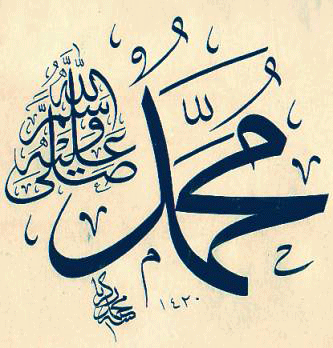 Each of you is a guardian and each of you is questioned over his subjects, the Imam who is responsible over the people and he is questioned over his responsibility, and the man is responsible over the people of his household and he is questioned over them, and the woman is responsible over her husbands house and his children and she is questioned over them, and the slave is a guardian over the wealth of his master and he is questioned over it, each of you is a guardian and each of you is questioned over their responsibility
Each of you is a guardian and each of you is questioned over his subjects, the Imam who is responsible over the people and he is questioned over his responsibility, and the man is responsible over the people of his household and he is questioned over them, and the woman is responsible over her husbands house and his children and she is questioned over them, and the slave is a guardian over the wealth of his master and he is questioned over it, each of you is a guardian and each of you is questioned over their responsibility
The Imam is Responsible for the Ummah
أَلاَ كُلُّكُمْ رَاعٍ وَكُلُّكُمْ مَسْئُولٌ عَنْ رَعِيَّتِهِ فَالأَمِيرُ الَّذِى عَلَى النَّاسِ رَاعٍ وَهُوَ مَسْئُولٌ عَنْ رَعِيَّتِهِ وَالرَّجُلُ رَاعٍ عَلَى أَهْلِ بَيْتِهِ وَهُوَ مَسْئُولٌ عَنْهُمْ وَالْمَرْأَةُ رَاعِيَةٌ عَلَى بَيْتِ بَعْلِهَا وَوَلَدِهِ وَهِىَ مَسْئُولَةٌ عَنْهُمْ وَالْعَبْدُ رَاعٍ عَلَى مَالِ سَيِّدِهِ وَهُوَ مَسْئُولٌ عَنْهُ أَلاَ فَكُلُّكُمْ رَاعٍ وَكُلُّكُمْ مَسْئُولٌ عَنْ رَعِيَّتِهِ
Each of you is a guardian and each of you is questioned over his subjects, the Imam who is responsible over the people and he is questioned over his responsibility, and the man is responsible over the people of his household and he is questioned over them, and the woman is responsible over her husbands house and his children and she is questioned over them, and the slave is a guardian over the wealth of his master and he is questioned over it, each of you is a guardian and each of you is questioned over their responsibility
(Muslim/ Bukhari)
Commentary
a. Every person will be questioned regarding their responsibility, according to the scope of the responsibility they have been given in the position they have taken upon themselves.
b. According to the scholars the guardian is the one who is protecting, trustworthy, adherent, and righteous over everything that falls under his eye.
c. The leader/ Imam is responsible for the people generally, and is in charge of protecting the rights that the Shari’ah has laid down for them, and implementing upon the people what has been legislated by Allah سبحانه وتعالى in terms of rules, laws and punishments.
d. The word used for people is general and so indicates that the ruler is responsible for each and every one of his subjects, including the people of dhimma (non-Muslim citizens of the state).
e. The use of the word “راع” can mean a shepherd, which indicates the characteristics of the one in position of responsibility and authority above others – as the one who is able to organise and manage his flock, ensuring they do not stray onto the edge such that they fall off the cliff, keeping them together in one direction. He cares for the flock, worrying over them, guiding them and directing them.
f. The fact that each person will be questioned by Allah سبحانه وتعالى regarding their position and responsibility engenders a sense of accountability that is not found in non-Islamic systems, where the politician may not feel any accountability except for that which is openly known to the people.
